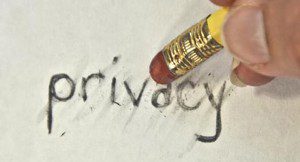The Henry Report
Privacy is fleeting. Or at least it is now.
As the Supreme Court debated the right, or lack thereof, of law enforcement’s ability to search your cell phone without a warrant, most of America celebrated the NBA’s decision to ban Los Angeles Clippers owner Donald Sterling for comments he made about African-Americans.
California Solicitor General Donald DuMont argued that anyone who is under arrest shouldn’t have an expectation of privacy.
As usual, the law always plays catch-up with technology, and in this case, law enforcement is trying to find its place with modern technology.
In the social case against Donald Sterling, his mistress leaked a private conversation between them where Sterling told her not to bring black men, specifically Magic Johnson, to Clippers games.
He went on to say that his worldview of minorities is in line with the majority; that the culture is too big to change and he’s not the one to slay that dragon.
Without me tackling the latter portion of his comments, ESPN.com columnist Jason Whitlock did a masterful job of explaining how Donald Sterling is regurgitating what the culture has taught him.
At any rate, the issue of privacy and what happened with Sterling has been completely missed. Sure, what he said was repugnant and steeped in ignorance, but the general public wouldn’t have known about his worldview without the audio being leaked.
How would that work with us, just regular folk, if our private conversations about our bosses were sent to them? Again—not feeling sorry for Sterling, just attempting to relate it to our daily lives.
Let’s take this a step further. What if the Supreme Court rules that the police can confiscate your cell phone without a warrant, and an NBA player is arrested and his smartphone is taken.
What’s found on that phone may potentially ruin the NBA player’s life because his privacy was put on full display for the world to judge.
Did the NBA set a precedent with unintended consequences? Outside of owners being punished for skewed and unconscious comments about a certain group of individuals, what will the players of the NBA face?
What if Michael Jordan is caught cheating on his wife and there are players on his team that disagree with his way of life? Will the NBA ban him for life because it clashes with their image?
If a player listens to music with racist and misogynistic lyrics in it, or appears in a video with a rapper or singer who condones domestic violence or rape, will that player face a fine or ban?
Again—Sterling deserved his punishment because he is a recidivist. But what will the NBA look like now that new Commissioner Adam Silver threw the book at Sterling?
If an old rich white guy can be punished and banned from a private basketball league for life, what fate do you think the players will face for some of their future actions?
Privacy is fleeting as Donald Sterling found out. Your privacy belongs to the world now, and if not for a scorned side chick, the world still wouldn’t know the name Donald Sterling.
Because his privacy was invaded, we now know more about him than we know about the Supreme Court on a random Tuesday in April.
Are the NBA players really ready for this new way of life and thinking? Because if not, they will have no way for retribution if the screw-up is royal enough to warrant a lifetime ban.



